Carl Sagan
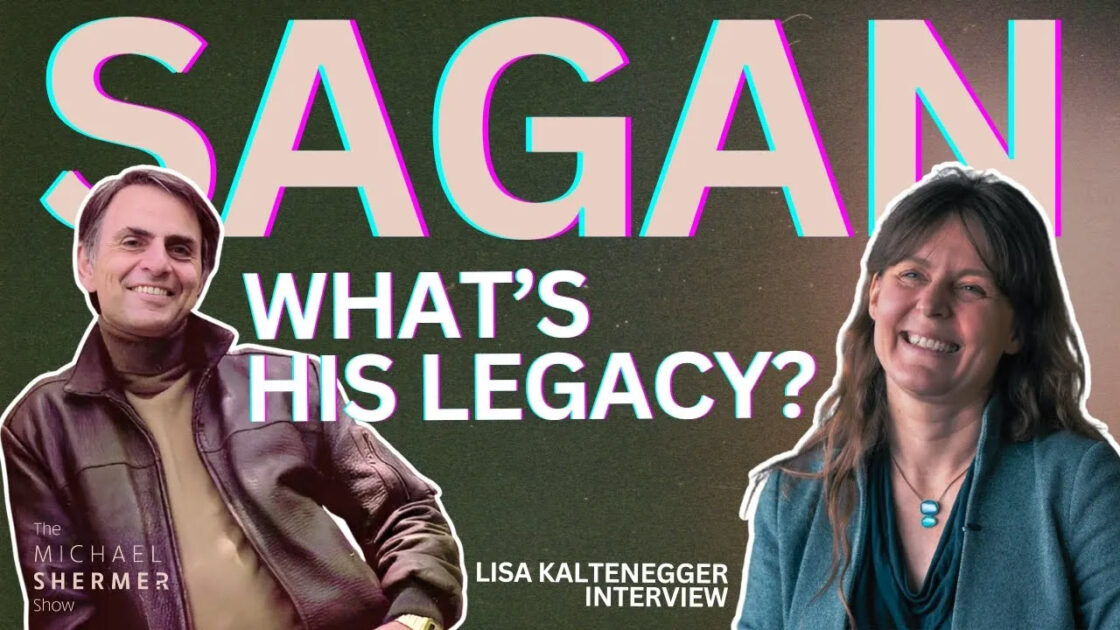
Shermer and Kaltenegger discuss: Carl Sagan and his influence • Sagan’s Dragon • ECREE Principle • how stars, planets and solar systems form • how exoplanets are discovered • Hubble Space Telescope, Kepler Space Telescope, James Webb Space Telescope • The Origin of Life • Fermi’s Paradox: where is everybody (the Great Silence, the Great Filter) • biosignatures • technosignatures • Dyson spheres • Will aliens be biological or AI? • interstellar travel • Kardashev scale of civilizations • how…
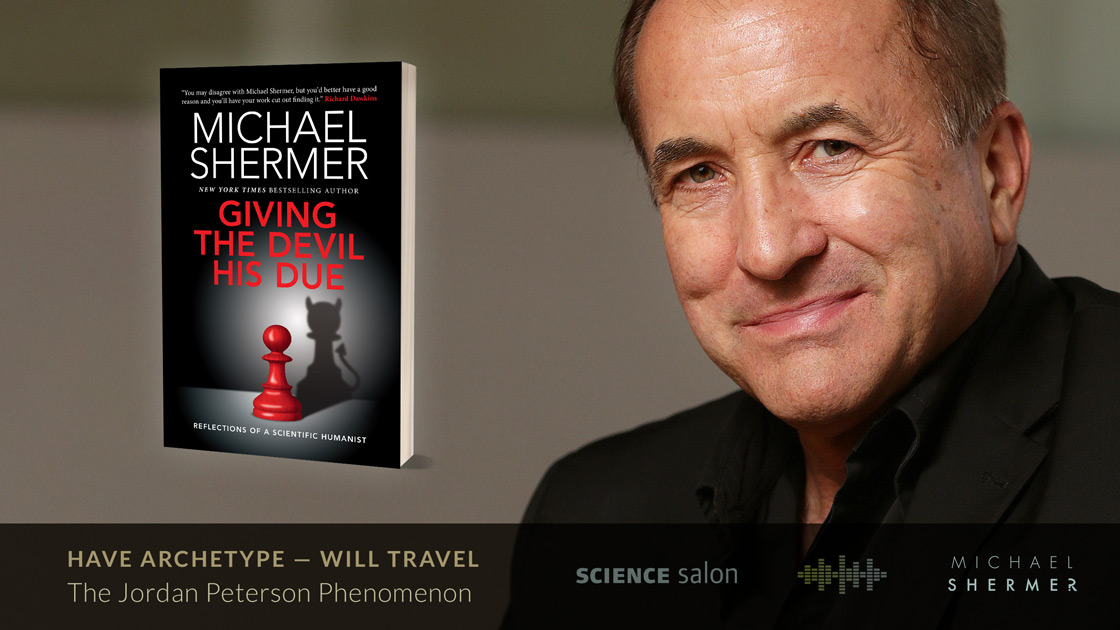
In Science Salon # 148, Michael Shermer reflects on the recent resurrection of Jordan Peterson, the resurgent criticism of him and why so many people attack him, why similar such unwarranted attacks have been made against other public intellectuals.
Listen to “The Possibility of Life in the Universe,” a lecture by Carl Sagan, delivered one early evening in September 1974 (most likely Thursday, 5 September) to the U.S. Air Force Academy at Arnold Hall theater in front of a 3,000 cadet packed house lecture.
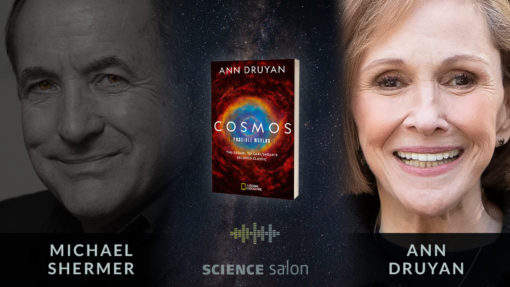
In this sequel to Carl Sagan’s beloved classic and the companion to the hit television series hosted by Neil deGrasse Tyson, the primary author of all the scripts for both this season and the previous season of Cosmos, Ann Druyan explores how science and civilization grew up together. From the emergence of life at deep-sea vents to solar-powered starships sailing through the galaxy, from the Big Bang to the intricacies of intelligence in many life forms…
In Science Salon # 112 Michael Shermer speaks with Ann Druyan about her book Cosmos: Possible Worlds, exploring how science and civilization grew up together. This book is the sequel to Carl Sagan‘s beloved classic and the companion to the hit television series hosted by Neil deGrasse Tyson.
This is a special Tuesday release of eSkeptic to honor Carl Sagan on the 20th anniversary of his death. We remember him fondly, on this day, grateful for the inspiration and education that he provided to so many.
On this, November 9th, the day of Carl Sagan’s birthday (1934), we celebrate and remember the man whose contributions and commitment to furthering the work of scientific skepticism have helped make the world a more rational place.
Skeptic Digital Back Issues: on Cryonics, Carl Sagan, and Conspiracies; Follow Michael Shermer: Forensic Pseudoscience: Can Tests be Trusted?; Daniel Loxton on INSIGHT at Skeptic.com: A Rope of Sand; Debate: Do We Need God? Michael Shermer v. Larry Taunton
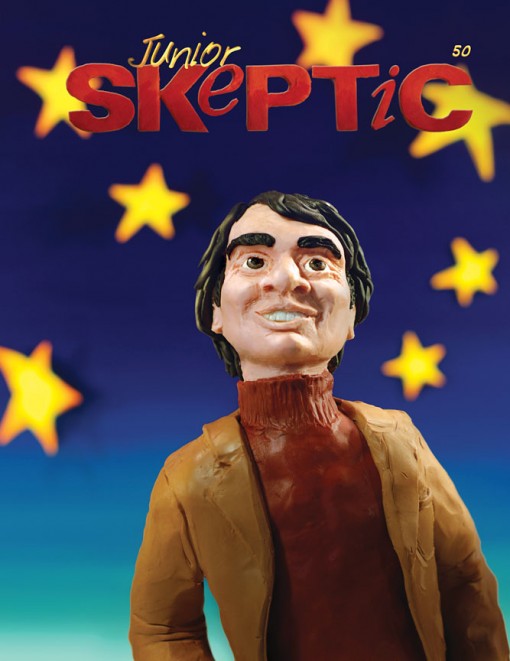
Daniel Loxton shares an excerpt from Junior Skeptic 50 (released in print format in 2014).
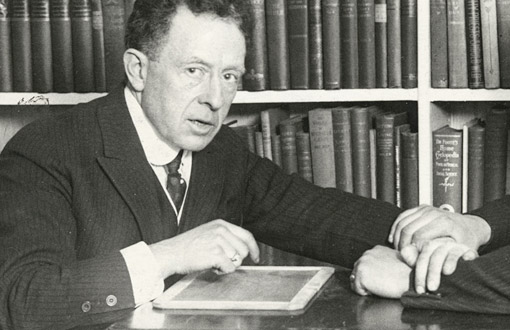
Daniel Loxton discusses skepticism’s inattention to its own history, and sets up a reflection for another post to follow.
Tim Farley looks into the origin of the saying "keep an open mind, but not so open your brain falls out," and finds it is older than most skeptics may think.
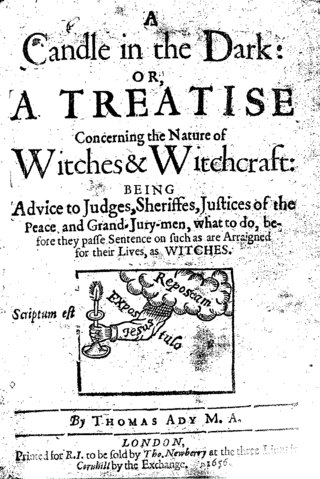
Daniel Loxton shares and discusses a quote from a skeptical volume which was written three and a half centuries ago as an urgent effort to curb the bloodthirsty witch hunting mania.
Pseudoscience runs rampant in much of the popular media, reducing science to stereotypes of evil mad scientists. With the recent reboot of Carl Sagan’s Cosmos documentary, we see the return of science popularization in a manner that inspires people (especially children) to be fascinated by science, to think about careers in science, and to pass Sagan’s mantle on to another generation. In this week’s eSkeptic, scientist and educator Donald Prothero reviews the first episode of Cosmos: A Spacetime Odyssey, which…
The PBS broadcast of Carl Sagan’s 13-part documentary, Cosmos: A Personal Voyage, was one of the most watched series in the history of American public television. The soon-to-be-released sequel, Cosmos: A Space-Time Odyssey (see above), written, executively produced and directed by Ann Druyan, premieres Sunday, March 9, 2014 at 9pm/10pm ET/PT on FOX. In light of the rebirth of this stellar production, we present to you, in this week’s eSkeptic, an interview with Ann Druyan conducted by Michael Shermer in…
In this week’s eSkeptic, Michael Shermer asks whether a scientific utopia can succeed; Daniel Loxton shares some thoughts from Carl Sagan about the value of scientific confrontation of pseudoscientific ideas; and Skepticality interview Robert Blaskiewicz and Guy Harrison about critical thinking.
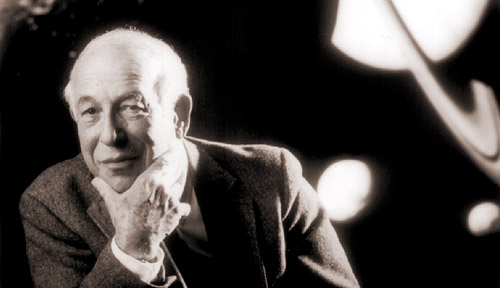
In the past half century of UFOlogy, one man stands out, among a sea of believers, as the definitive skeptic of all matters flying saucers and aliens. This interview with Philip J. Klass (1919–2005), one of the last he gave of his career, goes inside his investigations into the claims of extraterrestrial investigations. This interview was published in Skeptic magazine volume 7, number 4 in 1999.
Few celebrities in science have done more for the promotion of science, reason, rationality, and critical thinking than Carl Sagan, whom we remember today upon the occasion of his birthday: November 9, 1934. Carl would have been 77 years old today. Happy Birthday Carl!
For nearly 50 years, the SETI (Search for Alien Intelligence) project has searched for evidence of alien civilizations and has occasionally sent messages into space with the intention of communicating with intelligent sentient extraterrestrial beings. How likely are we to come into contact with an extraterrestrial civilization? If they do exist, their aspirations could differ markedly from our own. Could visitors from extraterrestrial civilizations pose a threat to Earth? What would motivate aliens to visit the Earth? In this week’s eSkeptic, George…
What is the right approach to dealing with people who believe in the paranormal or some particular idea we could call pseudoscience? Naturally no one considers their beliefs to be pseudoscience or faith-based nonsense, so saying something along those lines to a believer’s face is likely to close off conversation. In this remarkable article, our own Daniel Loxton tackles the matter head on. Daniel shows that a controversy that erupted at last year’s The Amazing Meeting conference was just the…
In this week’s eSkeptic, we return to a controversy that raged throughout the 1990s in the anthropology world over whether or not Margaret Mead was hoaxed by her Samoan hosts during her research there while earning her Ph.D. under Franz Boaz. The following is an excerpt from The Trashing of Margaret Mead: Anatomy of an Anthropological Controversy by Paul Shankman. Used by permission of the University of Wisconsin Press.
NEXT →















